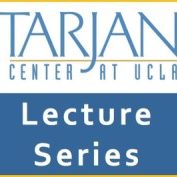The UCLA Graduate Student Reading group was first organized by Professor Juliann Anesi (Gender Studies) and Pia Palomo (Disability Studies) as a way to build community among UCLA graduate students with shared interests in disability studies.
The group drew students from a range of departments, including English, Law, Gender Studies, as well as Education and Information Studies. The group met initially on January 19th, 2018 where they got to know each other and selected Right to Maim: Debility, Capacity, and Disability by Jasbir Puar as their Winter 2018 selection. At their inaugural book discussion on March 2nd, 2018, the group grappled with Puar’s core arguments around debility and bioethics, reflecting on the implications of the book’s framework for their individual scholarship.
The UCLA Graduate Student Reading group invites graduate students from across the university to come together and discuss key texts within the field of disability studies. For a schedule of future reading group discussions and more information on joining the group, please contact Pia Palomo (ppalomo@college.ucla.edu) at UCLA Undergraduate Education Initiatives.
AN EXCERPT FROM THE RIGHT TO MAIM
In The Right to Maim Jasbir K. Puar brings her pathbreaking work on the liberal state, sexuality, and biopolitics to bear on our understanding of disability. Drawing on a stunning array of theoretical and methodological frameworks, Puar uses the concept of “debility”—bodily injury and social exclusion brought on by economic and political factors—to disrupt the category of disability. She shows how debility, disability, and capacity together constitute an assemblage that states use to control populations. Puar’s analysis culminates in an interrogation of Israel’s policies toward Palestine, in which she outlines how Israel brings Palestinians into biopolitical being by designating them available for injury. Supplementing its right to kill with what Puar calls the right to maim, the Israeli state relies on liberal frameworks of disability to obscure and enable the mass debilitation of Palestinian bodies. Tracing disability’s interaction with debility and capacity, Puar offers a brilliant rethinking of Foucauldian biopolitics while showing how disability functions at the intersection of imperialism and racialized capital.


